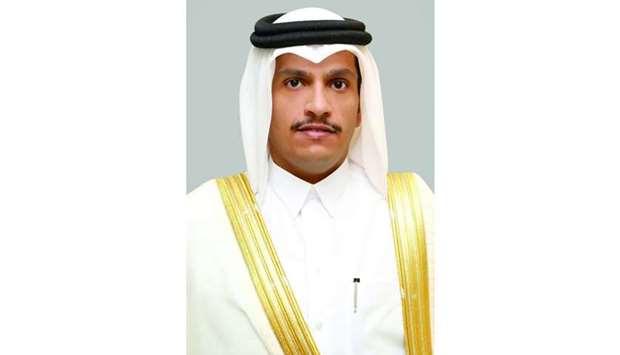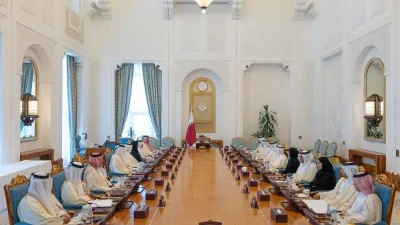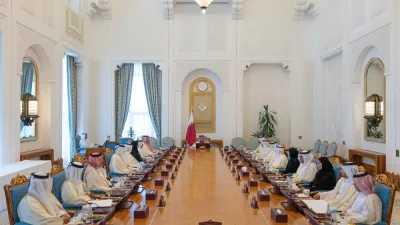*Lost and defensive; siege nations cut a sorry figure
*Bahrain conference fails to provide solutions to the stalemate
*Ready for dialogue if conditions are met, says Saudi-led bloc
*Calls for internationalisation of holy sites 'a declaration of war'
The meeting of the foreign ministers of the blockading countries in Bahrain has added contradictions to previous contradictions, said Qatari Foreign Minister HE Sheikh Mohamed bin Abdulrahman al-Thani.
In response to the blockading countries returning to the list of 13 demands and their promotion of what they call the 'six Cairo principles' after the Manama meeting, Sheikh Mohamed hinted the conference has only helped show the confusion reigning in the minds of the leaders of the siege nations.
"There is no clear vision in their statement but there is a continuation of the policy of insistence. There is no acknowledgement that the measures which were taken against Qatar are illegal and unjust.
"They claim that the steps they took against Qatar are related to their sovereignty and national security; on the contrary these steps violate the international declaration of human rights and international law and the freedom of movement. This is part of the contradictions in the statement."
In an interview with Al Jazeera Television, the foreign minister said: "Qatar did not politicise Haj, but it was regrettably politicised by Saudi Arabia. We are fed up with responding to media fabrications and invented stories,” he said.
The foreign minister said no Qatari official has issued any statement calling for the internationalisation of Haj.
"The four countries are claiming that they are committed to international law but their demands are a clear violation of international laws."
The four Arab countries which have cut ties with Qatar said on Sunday they were ready for talks to tackle the dispute if Doha showed willingness to deal with their demands.
The foreign ministers of the Saudi-led bloc met in the Bahraini capital Manama to discuss the crisis that has raised tensions across the region.
While addressing the media after their joint meeting, the ministers often looked lost and short of words for answers to the questions raised by the newspersons.
From their body language and desperate attempts to answer or evade queries, it was evident they did not know how to resolve a row that they have created without thinking of its consequences and which have attracted worldwide condemnation.
One obvious shift in policy could be observed; from their earlier stance of non-negotiable demands, the quartet has now climbed down to a position of 'dialogue with conditions'.
"The four countries are ready for dialogue with Qatar with the condition that it announces its sincere willingness to stop funding terrorism and extremism and its commitment to not interfere in other countries' foreign affairs and respond to the 13 demands," Bahrain's foreign minister, Sheikh Khalid bin Ahmed al-Khalifah, told a joint news conference after the meeting.
They announced no new economic sanctions on the Gulf state.
Analysts said the siege masters did not have a clue to the next steps to be taken to deescalate the situation. There have been independent reports that the siege of Qatar has adversely affected businesses in all the three GCC countries, particularly UAE (Dubai) and Bahrain, which observers said has been badly hit.
Diplomatic efforts led by Kuwait and backed by Western powers have failed to end the dispute, in which the four states have severed travel and communication links with Qatar.
Saudi Arabia, UAE, Egypt and Bahrain have previously issued a list of 13 demands for Qatar, which include curtailing its support for the Muslim Brotherhood, shutting down the Doha-based Al Jazeera channel, closing a Turkish military base and downgrading its relations with Iran.
Saudi Foreign Minister Adel al-Jubeir said Qatar was not serious in tackling the countries' demands.
Al-Jubeir called 'Qatar's demands for an internationalization of the Haj' a declaration of war against the kingdom, Saudi-owned Al Arabiya television said , although it was clear Qatar had not made any such demand.
"We reserve the right to respond to anyone who is working on the internationalisation of the holy sites," he said.
Qatar had expressed concern about obstacles facing Qataris who want to attend Haj this year.



